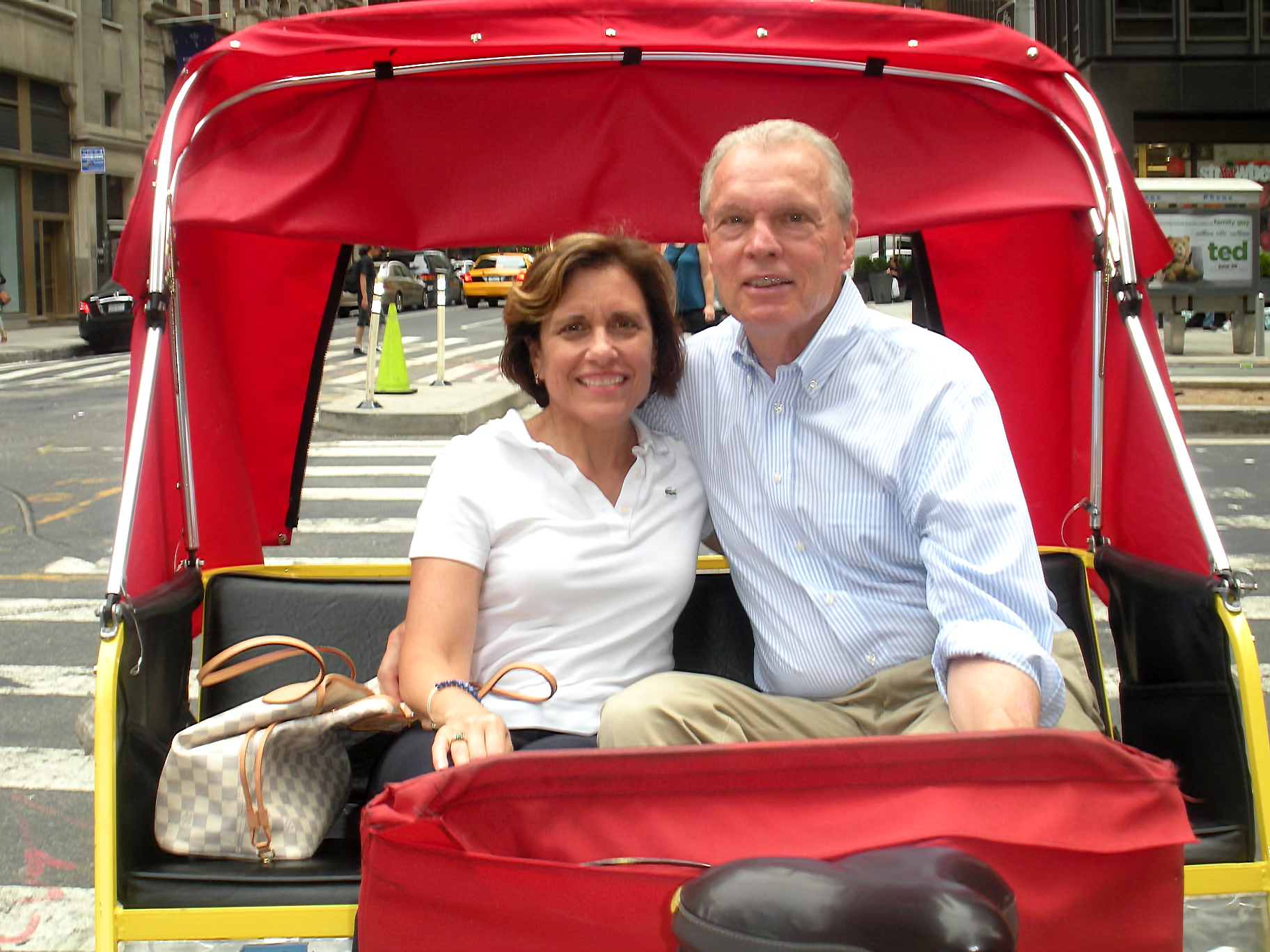People didn’t forget Thomas Byrne’s smile.
“He was like Sara Lee coffeecake,” says his wife Edythe “Edye” De Marco. “No one didn’t like him. He just did not have a mean bone in his body.”
After Tom passed away last September, Edye had many options when it came to choosing a way for their many friends and loved ones to honor his life.
It was a decision that came easily, unlike so many others she had to make after Tom was diagnosed with glioblastoma, a fast-growing cancer in the brain and spinal cord.
Edye chose HopeHealth as a beneficiary of charitable donations — often termed in lieu of flowers contributions — to appear in Tom’s obituary. The generosity of those who remembered Tom in this way will make a lasting impact as genuine as Tom’s smile.
Difficult decisions
Edye didn’t even know what glioblastoma was when Tom was first diagnosed. She quickly learned this deadly disease has no cure and extremely limited treatment options.
“In the beginning, I was 100% overwhelmed,” she recalls. “I was depressed. I was anxious. I was angry. I don’t know how people cannot be angry.”
Edye consented to emergency surgery on her husband, a decision she had to make with little time to gather information or think through other options. She regretted it.
“He was worse, far worse after his surgery than the days before his surgery,” she says.
In her professional life, Edye is a financial adviser and founder of The De Marco-McCarthy Group. She has a firm grasp and gentle voice to guide her clients through major decisions that will significantly affect their futures. She is also a savvy businesswoman who sets a high bar for customer service.
But in her personal life, everything was a blur as Edye struggled with the aftershocks of Tom’s illness. Plus she would never go back on a promise she made to Tom: He would remain at their Tiverton home and not go into a nursing home.
When a doctor recommended palliative care, Edye welcomed an intake nurse from HopeHealth into her home in August. The nurse observed Tom’s condition and recommended hospice instead.
“The training must be phenomenal there because the way that she had the conversation with me was in a very compassionate way.”
“She did it in a very gentle way,” Edye says. “The training must be phenomenal there because the way that she had the conversation with me was in a very compassionate way. She wasn’t saying, ‘You really should move him to hospice care.’ She was trying to tell me that based upon where Tom was and his abilities or lack of abilities, that hospice was an option.”
So Edye excused herself for a moment and went into the other room to call her son Jason. “I told him the situation that was before us and he agreed with me that hospice would be in his dad’s best interest,” she says.

Compassion calling
That evening, another nurse arrived to admit Tom onto hospice service at home. Tom may not have understood his wife when she told him he was moving onto hospice service at their home and that the focus would now be on keeping him comfortable. But Edye felt relief just the same.
“We got the ball rolling very fast,” Edye recalls.
Tom was on service for exactly one month before he passed away. Edye welcomed a steady flow of HopeHealth hospice care team members in addition to family and friends who came to say their goodbyes to Tom.
“Every individual from HopeHealth who came into this house came in with compassion and love and caring to a degree that was beyond my expectation,” she says.
Nurses taught her how to fill vials of medication. Chaplain Denis Lynch spoke with her at length by phone the week after Tom was admitted and visited in person to talk about how she was doing and her thoughts for a memorial service. They prayed together with Tom at his bedside.
“Every individual from HopeHealth who came into this house came in with compassion and love and caring to a degree that was beyond my expectation.”
Denis returned the day Tom died for a bedside service with Edye and close friends. He gave Edye drops of holy oil to anoint Tom from a tiny vial he brought from Jerusalem.
“It was a very, very touching moment,” Edye says. “It gave me a lot of comfort.”
She also appreciated the certified nursing assistant who skillfully placed the rosary beads Edye bought in Rome around Tom’s fingers. “It just looked so beautiful,” Edye recalls. “I would not have known how to do that.”
The HopeHealth nurse who pronounced Tom’s death in the morning came back in the afternoon so Edye could be out of the house when the funeral director arrived for Tom.
“We received such great care and support, Tom and I both did during the time he was on hospice,” Edye says.

In lieu of flowers, honor a life
Edye’s choice to name HopeHealth in lieu of flowers led to more than $10,000 in donations to HopeHealth in Tom’s memory, a significant amount in a year when the pandemic reduced the number of funerals taking place. Often this type of memorial giving occurs after mourners take pre-addressed envelopes available during calling hours at funeral homes. The generosity of those who gave to HopeHealth in Tom’s name helped to meet increased needs from the pandemic.
“We received such great care and support, Tom and I both did during the time he was on hospice.”
Edye was happy to learn so many people chose to remember Tom in this way.
“It was with a totally open heart that I wanted in lieu of flowers donations to go to HopeHealth,” she says.
Gifts made in Tom’s name not only honor his life but help HopeHealth provide expert and compassionate care for others. Donations are tax deductible and are used to offer grief support groups, match volunteers to provide companionship for homebound veterans and cover the cost of end-of-life care for patients without adequate insurance among other programs.

